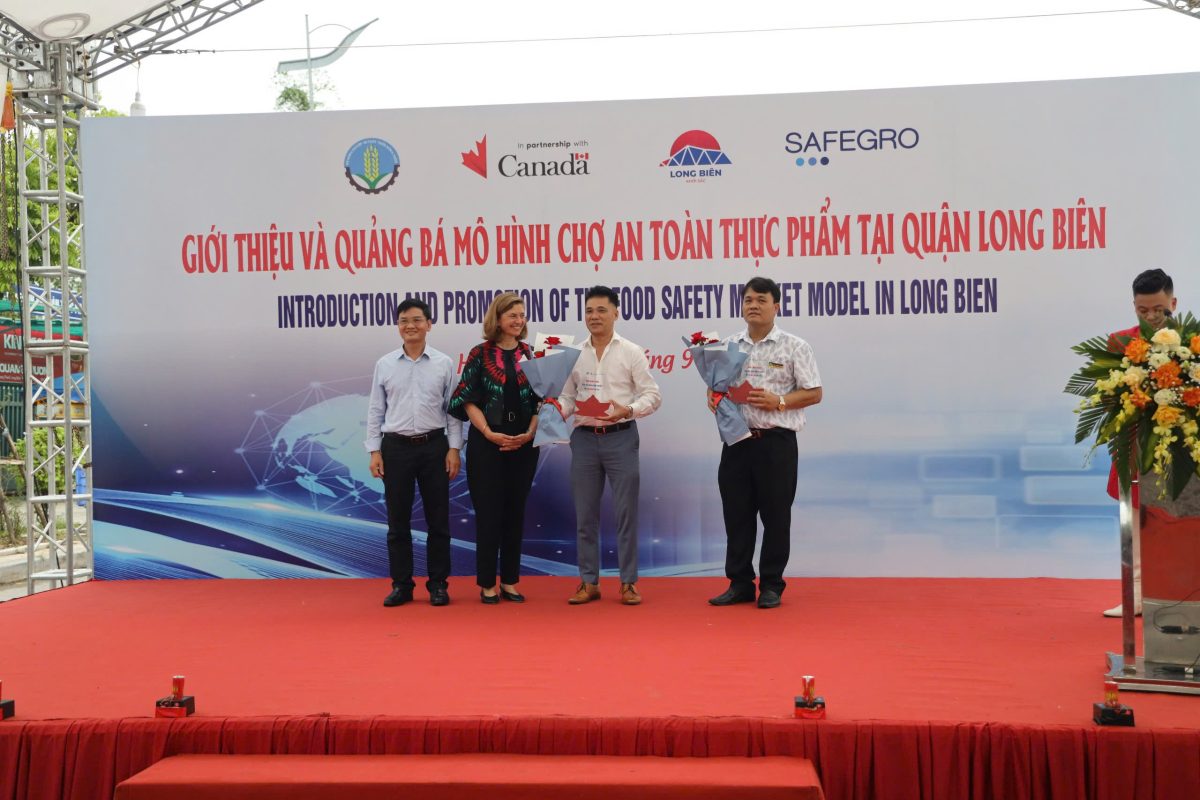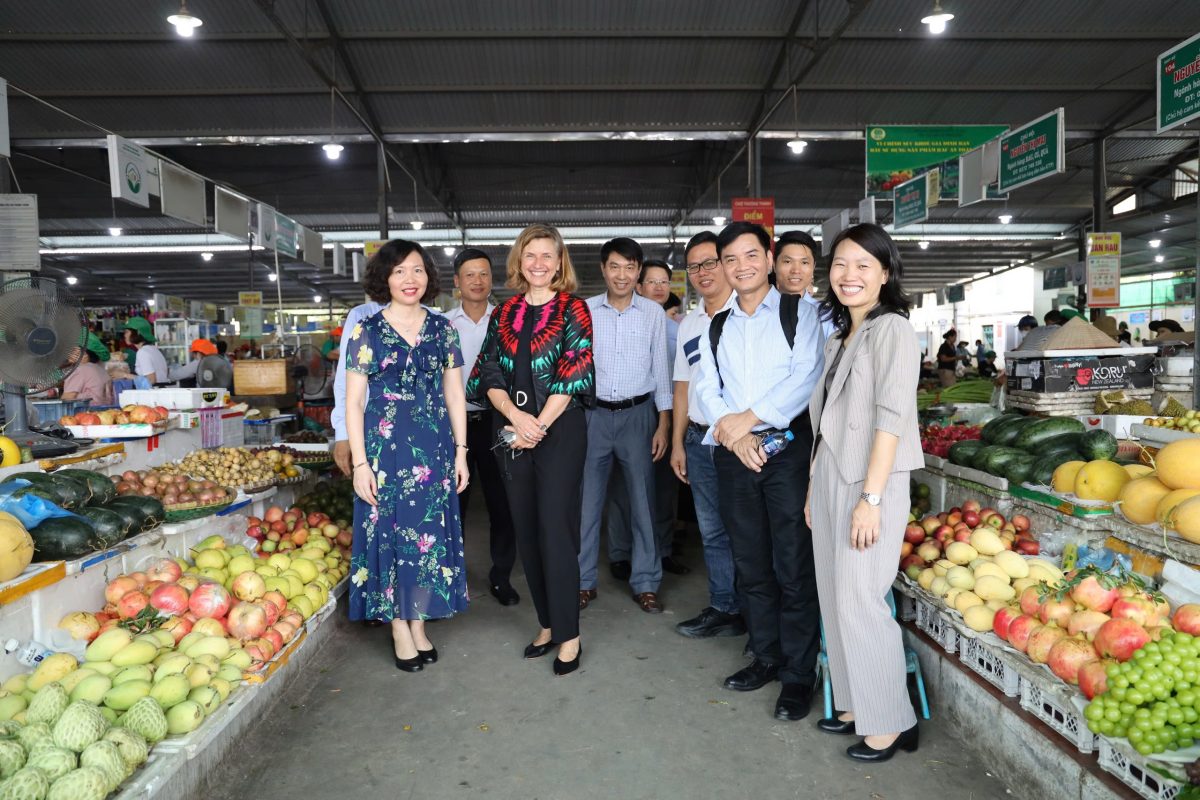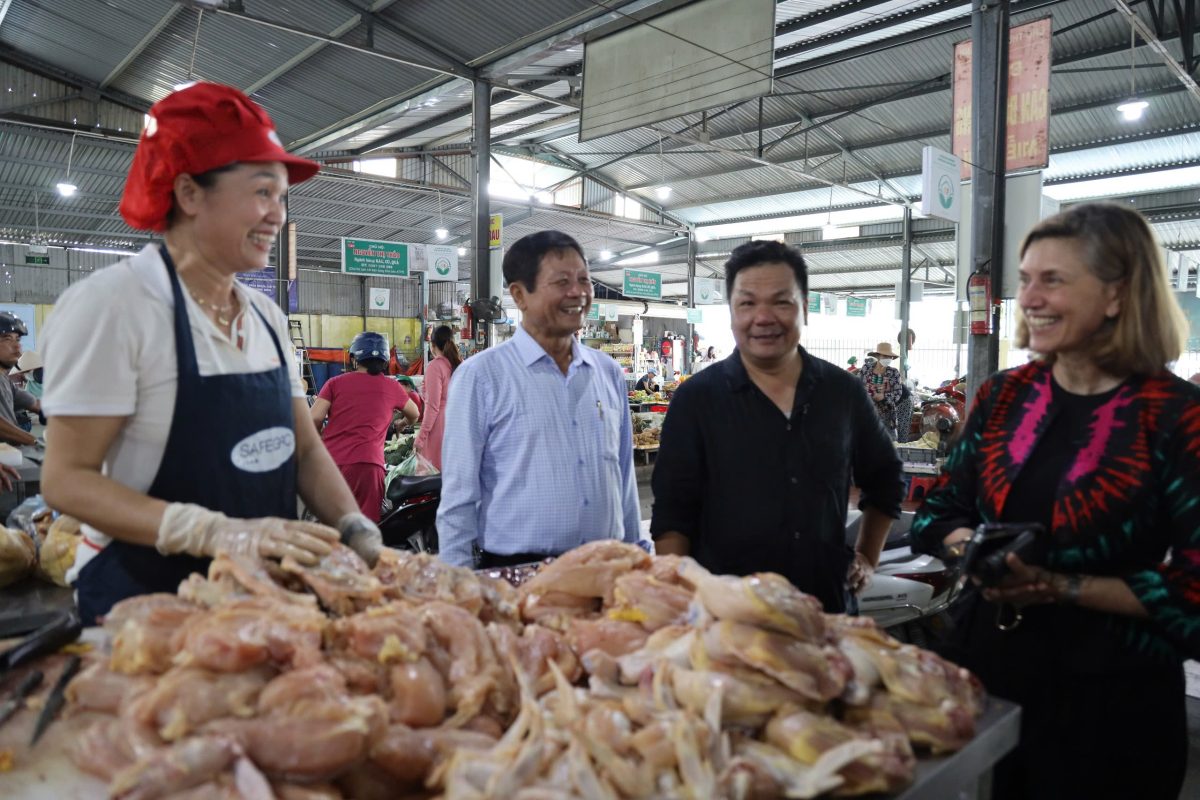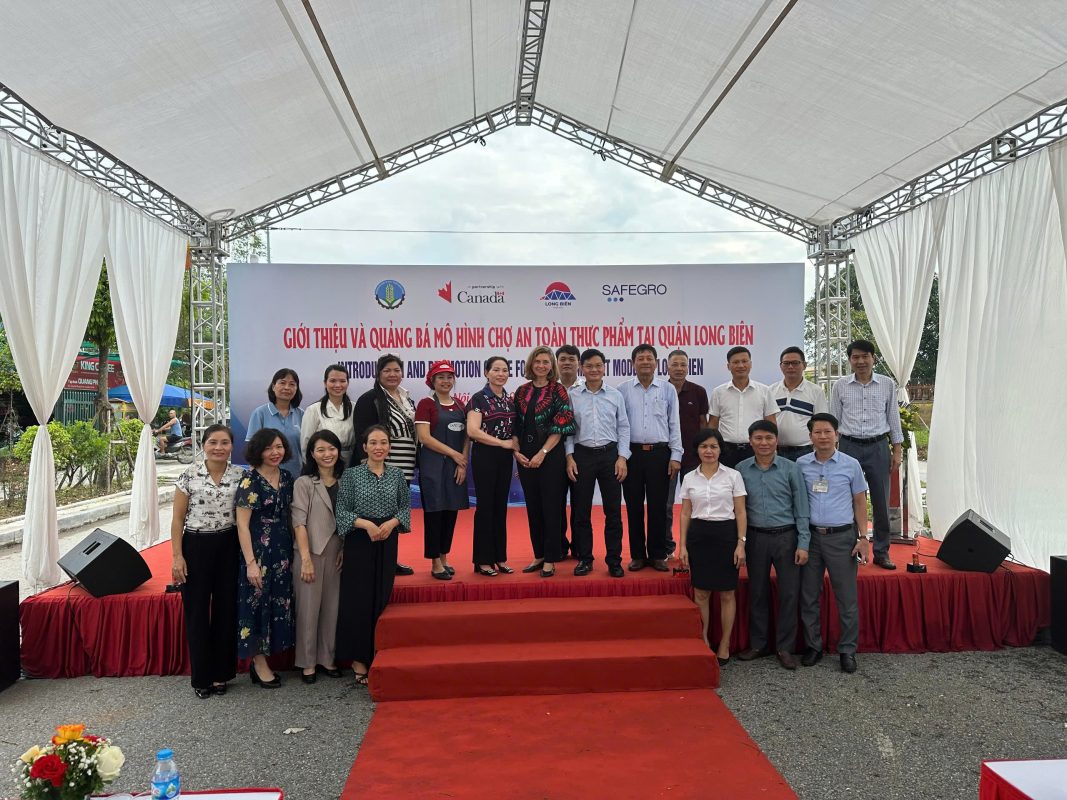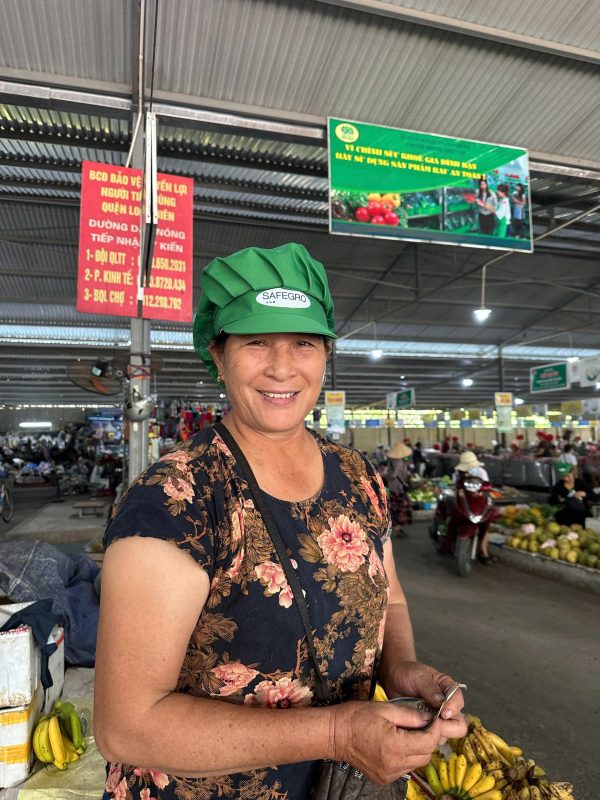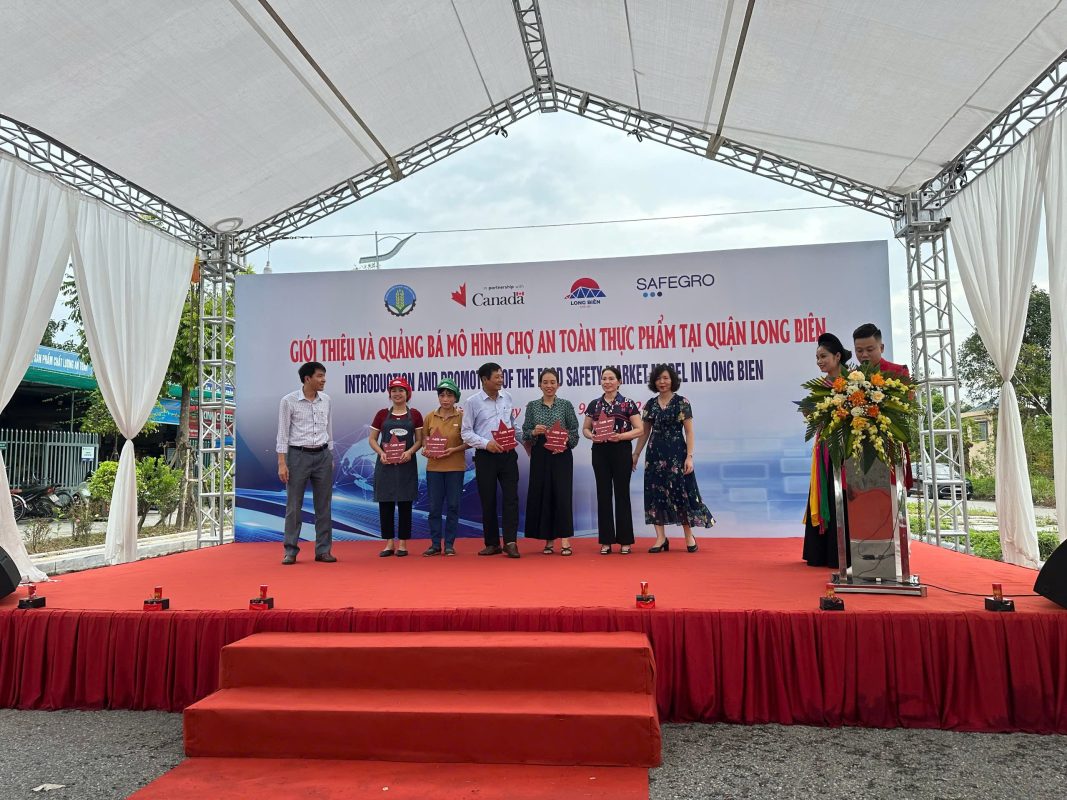Hanoi, September 19, 2024 – The National Authority for Quality, Processing, and Market Development (NAFIQPM) under the Ministry of Agriculture and Rural Development (MARD), together with the Safe Food for Growth (SAFEGRO) program and the Long Bien District People’s Committee (DPC), organized an event to introduce and promote the model of a safe food market in Long Bien district. The event was attended by representatives from the Canadian Embassy in Vietnam, the Inter-sectoral Working Group (ISWG, consisting of MARD, MOH, and MOIT), relevant departments of Hanoi, Long Bien DPC, project-supported value chain actors, the market management companies of Thuong Thanh and Kim Quan markets, vendors, as well as media.
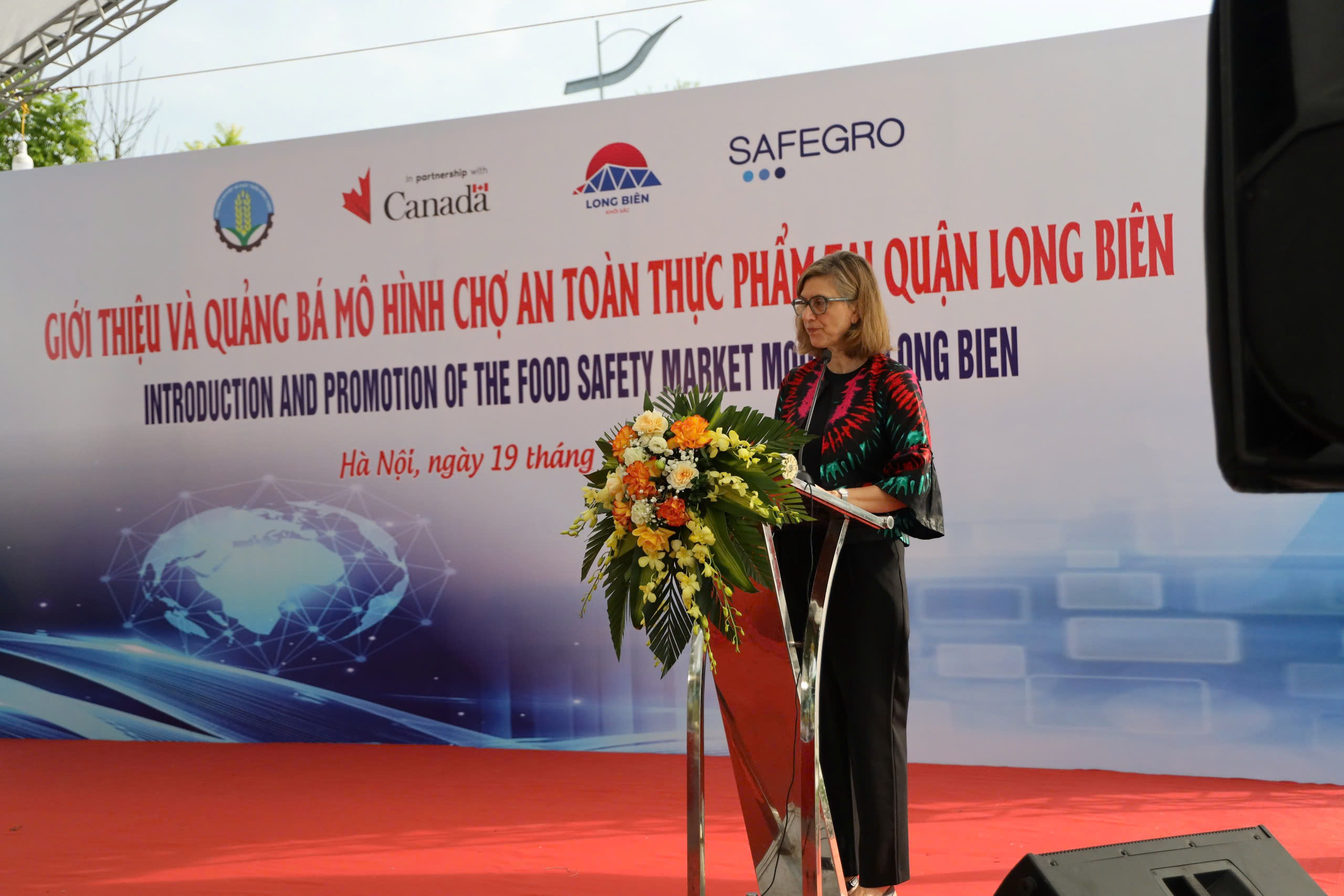
Food safety is currently a top priority in Vietnam, particularly in major cities such as Hanoi and Ho Chi Minh City. As the country undergoes rapid socio-economic development, the demand for safe food products is rising. Wholesale and traditional markets supply approximately 90% of food products while also supporting the livelihoods of many vendors. However, many local markets face challenges, including deteriorating infrastructure, inadequate facilities, and failure to meet food safety standards. Additionally, the zoning of commodities in the market remains inappropriate, and both vendors and consumers lack awareness of healthy business practices. These issues present significant challenges to managing and ensuring food safety in traditional markets.
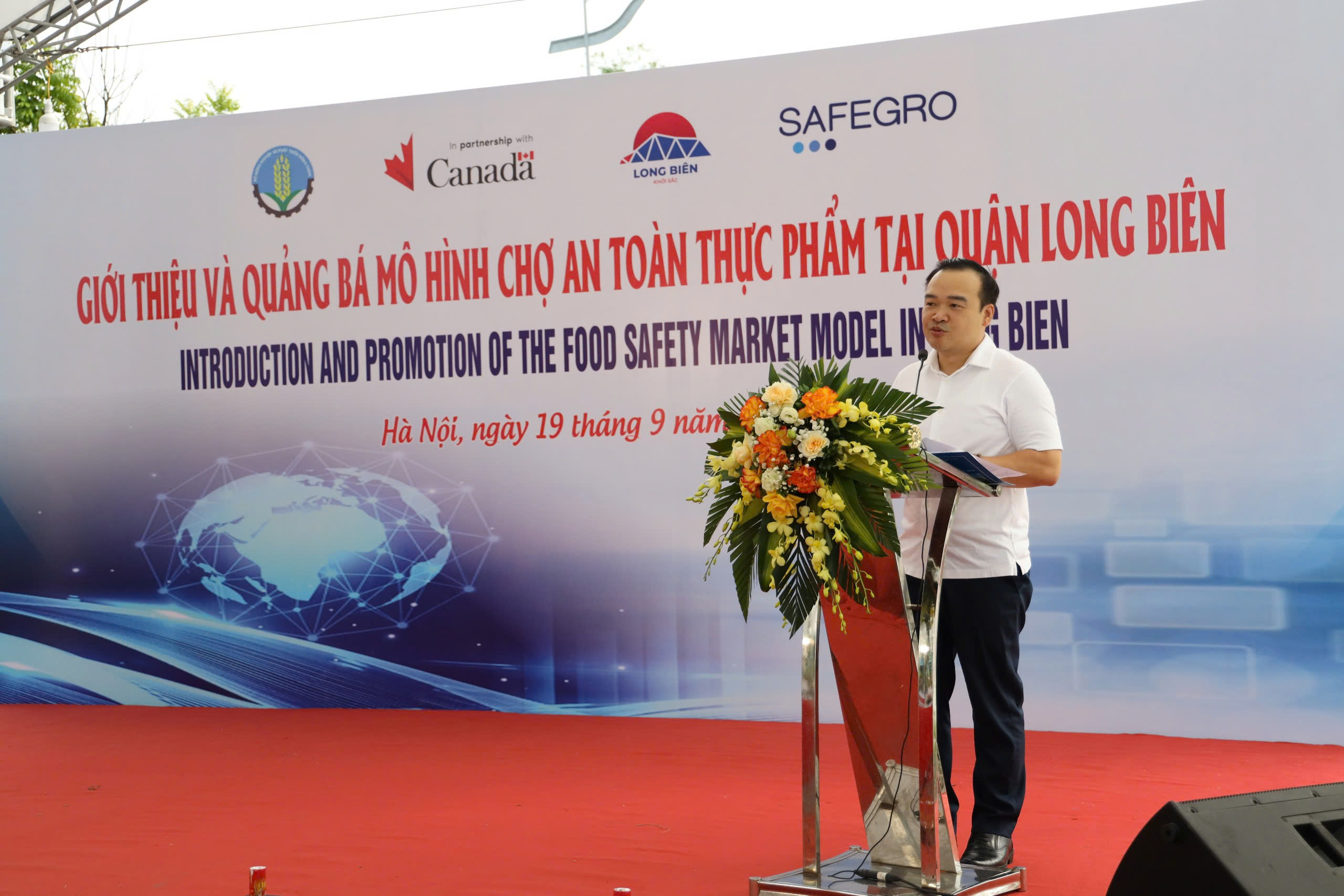
In an effort to address these challenges, the SAFEGRO project, funded by the Government of Canada, has partnered with the Long Bien DPC and market management companies to enhance food safety conditions at Thuong Thanh and Kim Quan markets. The project aims to provide Hanoi’s residents with access to safe, high-quality, and affordable food products while protecting public health.
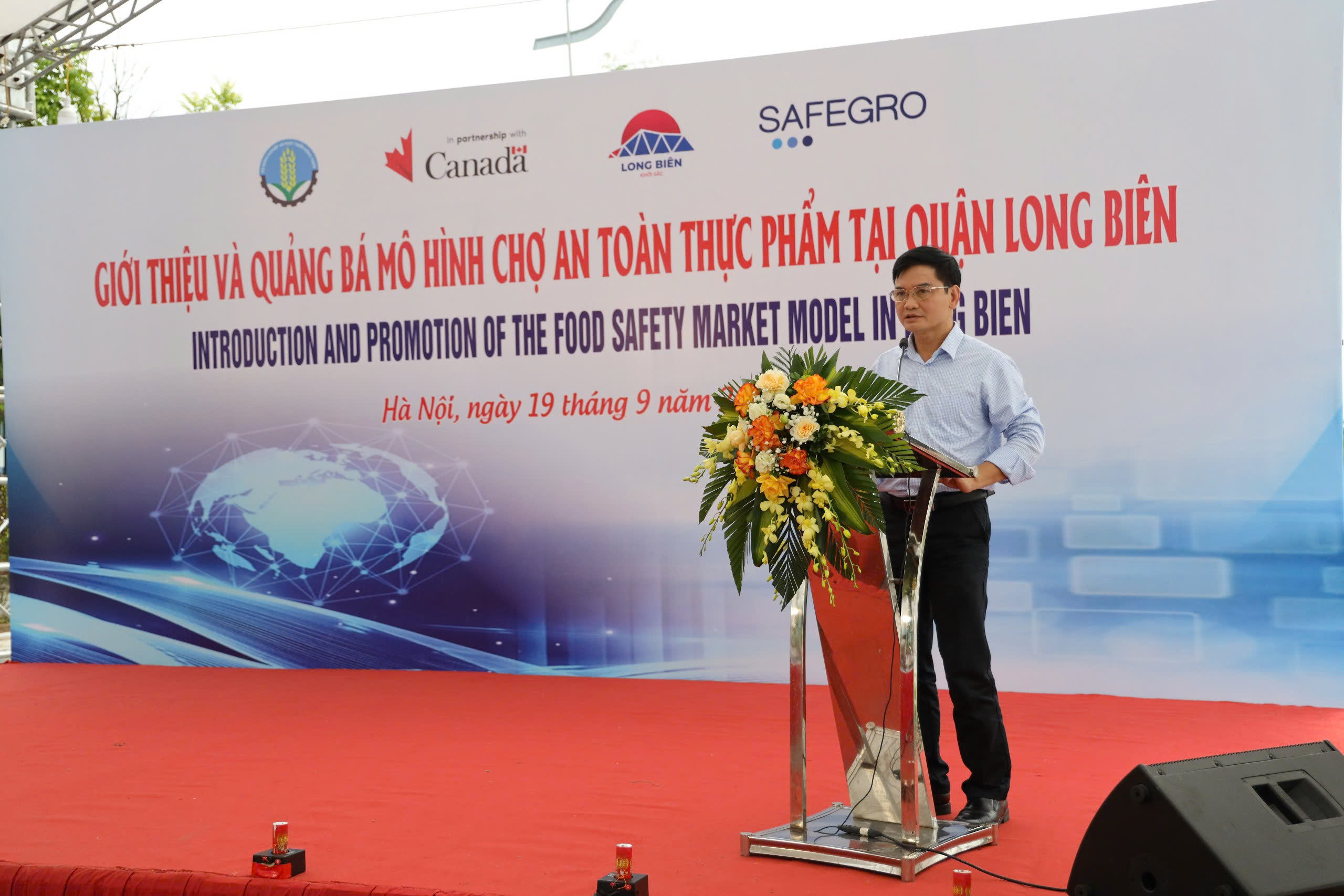
The project has supported the review and development of food safety procedures and processes in these markets, ensuring compliance with Vietnamese regulations while incorporating international best practices. SAFEGRO experts have also provided advice on functional zoning and the arrangement of commodities within these markets based on food safety risk levels.
In addition, SAFEGRO has conducted various in-depth training sessions for food safety management officers, market management companies, and vendors, particularly women, to raise awareness and promote safe food business practices.
SAFEGRO has provided essential equipment to improve food safety in these markets, including stainless steel tables for meat stalls, poultry slaughtering areas, and fish tanks at Thuong Thanh market, as well as stainless steel racks for vegetable stands at Kim Quan market. Both markets have been equipped with handwashing stations and waste carts, along with uniforms, aprons, hats, and gloves for vendors to improve personal hygiene. The project has also helped improve cleaning protocols by providing tools and disinfectants for market facilities and shared common spaces. Thanks to close collaboration with market management companies and the Long Bien DPC, infrastructure and conditions at both markets have been significantly upgraded.
Moving forward, the project will continue working with the Long Bien DPC and market management companies to finalize market management regulations, provide further training for stakeholders on good food safety practices, and collaborate with service providers for hygiene management in key food commodities.
The message the project aims to convey is: “The technical assistance from the SAFEGRO project not only contributes to protecting consumer health but also enhances the reputation and service quality of traditional markets.”
